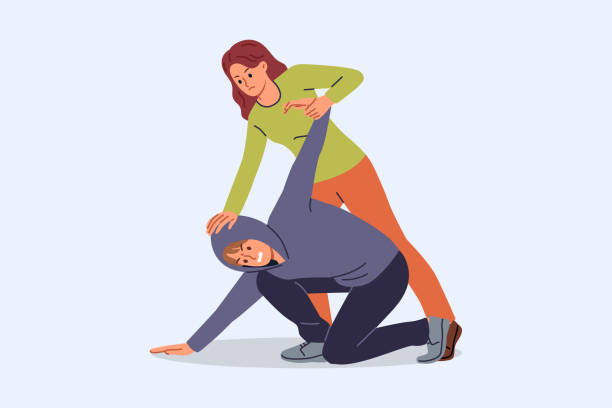Self-defense laws are often the subject of heated debate, especially when it comes to “Stand Your Ground” laws. In Texas, these laws grant individuals the right to use force when they believe they are facing an immediate threat. Sometimes, this can even be deadly force. However, despite the widespread belief that stand-your-ground laws provide absolute legal protection, the reality is far more complex.
Texas has some of the strongest self-defense laws in the country. However, they come with limitations, legal gray areas, and potential consequences. Understanding how these laws work, when they apply, and what their legal boundaries are can mean the difference between justified self-defense and a criminal charge.
What Is the Stand Your Ground Law?

Stand Your Ground laws eliminate the legal requirement to retreat before using force when faced with a threat. In states without such laws, a person may be legally required to attempt to escape or avoid a confrontation before resorting to self-defense. In Texas, however, if a person has a legal right to be in a location and they are not engaged in criminal activity, they do not have to retreat before defending themselves.
This law falls under the broader category of self-defense laws, but it is often misunderstood. It does not give people the unrestricted right to use force or escalate a conflict. Instead, it applies only in specific situations where a person reasonably believes they are in imminent danger.
The Legal Basis of Stand Your Ground in Texas
Texas law recognizes self-defense under Chapter 9 of the Texas Penal Code, which outlines the justification for using force. The stand-your-ground principle is embedded in what is known as the “Castle Doctrine.” This generally applies to homes, vehicles, and workplaces. However, Stand Your Ground laws extend these protections beyond private property, allowing individuals to defend themselves in public spaces as well.
The key elements of Texas self-defense law include:
- A person must have a legal right to be present at the location where the force is used.
- The individual must not be engaged in criminal activity at the time of the incident.
- They must have a reasonable belief that force is immediately necessary to prevent harm or a violent crime.
- They do not have a duty to retreat before using force if they meet the above conditions.
Texas law also distinguishes between the use of force and deadly force. While force may be used in various self-defense situations, deadly force is only justified in cases where there is an imminent threat of serious bodily injury, sexual assault, or death.

When Can You Legally Use Deadly Force?
Although Texas law allows for self-defense without a duty to retreat, deadly force is not automatically justified in every situation. The law permits deadly force in cases where an individual reasonably believes it is necessary to:
- Protect themselves from an attacker who is using or attempting to use deadly force.
- Prevent an aggravated robbery, murder, sexual assault, or other violent felony.
- Stop an intruder from unlawfully entering or attempting to remove someone from their home, vehicle, or place of work.
However, the use of deadly force must be reasonable. If a person uses excessive force or if the situation does not warrant a deadly response, they could still face criminal charges.
For example, if someone is verbally threatening another person but is not armed or physically attacking them, the use of deadly force may not be legally justified. Similarly, if a person provokes a fight or escalates a confrontation and then claims self-defense, they may not be protected under Stand Your Ground laws.
What Are the Limitations of Stand Your Ground in Texas?
While stand-your-ground laws provide broad protections for self-defense, they are not without limitations. The following circumstances could result in legal consequences:
- If the person using force is the initial aggressor: Texas law does not protect individuals who provoke or start a confrontation and then claim self-defense.
- If there is no immediate threat: A person cannot claim Stand Your Ground if the threat has passed. It also wouldn’t work if they had an opportunity to leave the situation safely.
- If deadly force is disproportionate to the threat: The use of force must match the level of danger presented. Shooting someone over a verbal altercation or a minor physical scuffle could result in criminal charges.
- If the person is involved in illegal activity: Stand Your Ground laws do not apply to individuals engaged in criminal acts.
These limitations show that while Texas has strong self-defense laws, they do not provide blanket immunity for using force. Every case is judged based on its specific circumstances, and courts consider whether a reasonable person would have believed force was necessary.
The Role of Law Enforcement and the Courts

When a self-defense claim is made under Stand Your Ground laws, law enforcement officials investigate the incident. This is to determine whether the use of force was justified. Prosecutors examine evidence such as witness statements, security footage, and forensic reports to assess whether self-defense aligns with legal standards.
In some cases, individuals who believed they were acting within the law are still arrested and charged with a crime. This often happens when:
- There is conflicting evidence about what happened.
- The use of force appears excessive or unnecessary.
- The person claiming self-defense had an opportunity to retreat but did not.
- The circumstances suggest the individual escalated the situation rather than defending themselves.
Texas juries also play a role in determining whether self-defense was reasonable. Even when law enforcement and prosecutors decide to file charges, a jury may ultimately rule that a defendant acted lawfully.
High-Profile Cases and Controversy
Texas has seen several high-profile cases involving Stand Your Ground defenses, some of which have led to public debates about the fairness and application of the law. Critics argue that these laws can be misused to justify unnecessary violence, while supporters maintain they are essential for protecting individuals from violent criminals.
One of the most controversial aspects of stand-your-ground laws is their potential for misinterpretation. Some believe that these laws allow individuals to use deadly force whenever they feel threatened. Others worry that implicit biases can influence self-defense claims. These could lead to unequal legal outcomes depending on race, gender, or socioeconomic status.
Despite these debates, Texas continues to uphold stand-your-ground laws, reinforcing the idea that individuals have the right to defend themselves without fear of legal consequences—as long as they act within the law’s boundaries.
Why Understanding Stand Your Ground Laws Matters
For Texans, knowing the details of self-defense laws is critical for making informed decisions in dangerous situations. Misunderstanding the law can lead to serious legal consequences, including criminal charges, lawsuits, or even wrongful death claims.
Proper self-defense training and awareness of legal responsibilities can help individuals avoid unnecessary confrontations and ensure they act within the law if forced to defend themselves. Consulting with an attorney before carrying a firearm or using force in a self-defense situation is also a good way to understand personal rights and limitations under Texas law.
Final Thoughts
Texas’ Stand Your Ground laws provide strong protections for individuals who need to defend themselves from immediate threats, but they do not grant unlimited rights to use force. Self-defense claims must meet specific legal criteria, and individuals who misuse these laws can still face criminal charges.
While these laws are designed to ensure that innocent people are not forced to retreat in dangerous situations, they require careful judgment and a clear understanding of what is legally justified. Whether in the home, on the street, or in a vehicle, Texans should educate themselves on their rights and responsibilities under the law to avoid legal trouble and protect themselves effectively.
If you or someone you know is facing legal issues related to self-defense, seeking professional legal advice is essential. Understanding the complexities of Texas self-defense laws can make all the difference in ensuring that your rights are protected.




